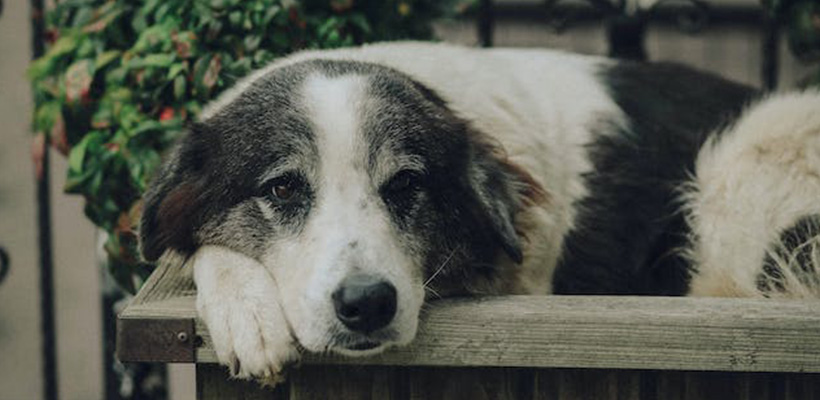
Understanding the Mysterious Canine Respiratory Illness of 2024
If you’re a dog owner, you may be worried about the mysterious canine respiratory illness of 2024 that has been reported in multiple states across the US. While it’s true that there is a spike in cases, it’s important to understand that respiratory infections are not uncommon in dogs. We may not know the cause of this illness yet, but owners should follow the same precautions and procedures as they would with any respiratory illness. In this blog, we’ll go over everything we know about the disease right now and what you should do to keep your pup as healthy as possible.
What We Know About the Disease So Far
An outbreak of severe respiratory illness has been reported in dogs across at least 15 states. While the illness resembles kennel cough, this illness has sometimes resulted in complications like pneumonia and death in especially severe cases. Research is still needed to determine the cause, but some research teams are closing in on what they think the culprit might be. Until then, dog owners should stay vigilant and stay updated on the latest best practices.
We’ll talk more about the latest findings further down, but for now, the suspect is either a new pathogen or a known virus or bacterium that may have evolved. It’s important to note that dogs with the illness have responded to treatment, so you should speak to your veterinarian right away if you suspect your dog is ill.
Transmission: How Is the Dog Respiratory Illness Spread?
As with most respiratory illnesses, this disease seems to be spreading through contact with other dogs. With the unknown factor of this illness, owners should try to keep their dogs away from unfamiliar dogs. Respiratory viruses and bacteria can be very contagious for dogs, and there are certain hotspots you’ll want to avoid for the time being. To avoid transmission and spreading the disease, you should try to minimize exposure to places like boarding kennels, daycare centers, dog parks, dog shows and groomers. Also, if your dog seems sick, you should make sure to keep them away from these places for the safety of other dogs.

Recognizing the Symptoms
Other than avoiding places where your dog could catch the condition, you should also be attentive to your dog’s health and any symptoms they might experience. Take note if they display symptoms such as:
- Coughing
- Eye or nose discharge
- Sneezing
These could indicate the onset of illness, and you should make sure to speak with your vet as soon as possible. Owners should be especially wary of more serious symptoms like:
- Loss of appetite
- Difficulty breathing
- Extreme lethargy
- Persistent coughing
If you observe these symptoms, make sure to seek immediate veterinary care. Acting quickly can improve your dog’s prognosis, prevent the illness from spreading and help you ensure your dog gets the care they need. While respiratory illness can sometimes subside on its own, the severity of this new contagion has sometimes proven to be fatal if left untreated. It’s also worth noting that canine respiratory illnesses display many of the same symptoms, so your dog may have a more common respiratory illness instead of the new mysterious one that has been popping up lately.
Safety Advice for Dogs at Home
To keep your pup safe at home, you should make sure to pay extra attention to safety precautions. In most years, there are outbreaks of respiratory illness in canines, so you won’t have to follow stricter protocols forever. Although this illness is more mysterious than others, the general guidelines are relatively the same for keeping them safe. You can try the following safety tips:
- Limit exposure to other dogs — As much as your dog loves play dates, try to limit their exposure to dogs in social settings for the time being. This keeps both your dog and other dogs safe.
- Avoid encounters with other pups — While taking your dog for their walks, make sure to try to avoid other dogs since you don’t know their health status.
- Stay up to date on vaccinations — Keeping your dog up to date on vaccinations will ensure they’re protected from as much illness as possible.
- Keep your dog happy — Although you should avoid unnecessary risks for the time being, your pup still needs to exercise and play! Make sure to keep life normal for your dog, even if you have to minimize going to the dog parks while the sick season passes.

Safety Tips for Dog Destinations: Boarding, Grooming and Parks
We covered safety tips for home, but what about boarding, grooming and parks? Let’s go over some safety tips that will help you minimize your dog’s exposure to respiratory bacteria and viruses:
- Boarding — Boarding facilities are at high risk for spreading respiratory illness when there’s an outbreak, so try to avoid boarding your pup if possible. Consider hiring a pet sitter or see if a friend or family member can take care of them while you’re gone. If you must board them, make sure to verify the cleanliness and safety standards the boarding facility has in place.
- Grooming — Again, keeping exposure to a minimum is best, so avoid going to the groomers at this time if possible. You could always try grooming your pet at home or consider calling a mobile grooming service to your house. If you bring them to a groomer, see if the groomer has protocols in place to keep them from interacting with other dogs.
- Parks — You can still bring your dog to the park to play, but try avoiding crowded times so you don’t risk unexpected encounters with other dogs.
Of course, if your dog is displaying any symptoms, make sure to stay home. You don’t want to expose other dogs and spread the illness.
Veterinary Insights and Ongoing Research
As mentioned, research into this mysterious canine respiratory disease is ongoing, and research teams can’t definitively say the source yet. Unlike research into outbreaks of human illnesses, pet illness research is sometimes a bit slower.
Recently, researchers have found that the cause of the illness may be a bacterium with a genome that displays high levels of adenine and thymine but low levels of cytosine and guanine. The bacterium also seems to be incapable of independent survival, indicating it needs a host to live and thrive. As of now, these teams will have to conduct additional research to confirm the identity of the pathogen. If they can find the bacterium causing the illness, the research could play a crucial role in helping treat dogs who come down with the illness. For now, we’ll just have to wait and see what they find.

What Pet Owners Can Do Right Now
So, what should you do right now? Other than taking some extra precautions and avoiding unnecessary contact with strange dogs, things don’t have to be much different in your pup’s routine.
Having your pup up to date on their vaccinations and health needs is a priority, and you can also check with your local vet to see if the outbreak has been reported in your area. With the outbreak of this illness being reported in 15 states at this point, it’s possible that there may not be an active contagion in your region.
While it’s certainly a good idea to stay vigilant and attentive to your dog’s health, there’s no need to panic. As mentioned, respiratory illnesses are common in dogs, and even if your dog gets sick, it may not be due to this new mysterious contagion. Also, dogs have recovered from the contagion with a mild case, so just make sure to keep your vet updated on your pet’s status. The key is to stay alert and informed while continuing to provide our pets with the love and care they deserve.
Conclusion: Staying Vigilant and Prepared
Being vigilant and prepared is always a great idea when it comes to taking care of your pup! By being equipped with awareness, knowledge and a proactive mindset, you can keep your beloved dog protected. There will undoubtedly be more information about this contagion as research continues, so it also helps to stay on top of the latest news and research. For now, just hang tight and continue to take care of your pet following your vet’s guidance and the latest safety recommendations.

Diane
March 2, 2024 at 4:46 PMI have taken my dogs to 3 different vets several times. Same results
same “guessing” diagnosis “kennel cough” after doing tests 3 different medications. Dog that got it 1st in Sept is worse, 2nd dog same as before, 3rd coughing occasionally
Any suggestions?
Diane
March 2, 2024 at 5:14 PMÍ don’t think they even knew about the new virus They are only trying meds used for kennel cough
I am tired of taking them to vet plus it is costly
I just don’t know what to do at this point they have done
individual testing for other respiratory problems
Rather strange that all 3 dogs have exact symptoms, but still act like they feel good eating and drinking just fine! Coughing choking sounds no vomiting
Thank you diane
AM
March 16, 2024 at 8:50 PMSounds like my girl.
Kimberly
March 22, 2024 at 11:17 PMMy dog is experiencing the symptoms. 2 rounds of doxycycline and a cough suppressant pill rd of prednisone and lastly ling stretch of temaril-p. Still coughing / hacking. Slight lethargy. I just want something to help her.
A.M
March 16, 2024 at 8:49 PMMy dog has had this cough 2 months. Gulf coast in houston says after a certain amount of time they are no longer contagious & we can stop antibiotics but to keep using antihistamines & cough suppressants. The cough meds did nothing. The only thing that seems to help her is Benadryl. She coughs so much she’s nauseous. Next we try hydrocodone. Sigh!!!
M.R.T.
April 9, 2024 at 3:27 PMMy dog was treated for an upper-respiratory infection a month ago, and two weeks later it was upgraded to bacterial pneumonia. Now it’s pleural pneumonia, and since the new bigger, stronger meds were given a week ago, there’s no change but for the worse. Lethargy, big weakness, labored breathing, decreased appetite, and the shakes. I’m taking her back again soon, though they’ll likely tell me I just need to wait for the meds to work (again).